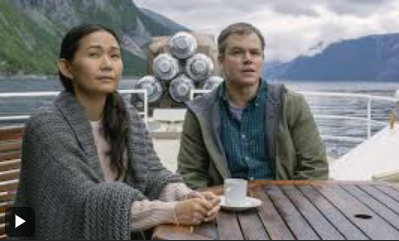Death and the King's Horseman
Death and the Kings Horseman is a play that deserves more than just a moment of reflection. Recent events have had me thinking about the play more and more. Its author Wole Soyinka has repeatedly written that there is more to its story than the clash of cultures and that rather than advocate for one view, he would rather there was more dialogue to understand the nuances of different cultures and in particular the placing of Yoruba culture.
The story (which is actually
based on true events that happened in 1946) revolves around Elesin, a man of
title (or Chief) and thus designated horseman to the King. The King dies and it
is Elesin’s honour and duty to accompany the King’s passage to the other side
by committing ritual suicide. It is not only something he is looking forward to
as per Yoruba tradition, but it is something he knew would be his duty and
privilege by virtue of his being a horseman (The King’s dog was also supposed
to meet a similar fate).
Enter a British Colonial Administrator
who considers the practice barbaric and puts an end to it by preventing Elesin
from taking his own life. However, that is only the beginning of the crisis as
Elesin’s son, who had been out in England studying medicine, cannot stomach the
shame and potential disturbance to the spirit world that this whole thing will
cause and ends up taking his own life instead, as a substitute for his father. His
father “the horseman” unable to handle the loss of his son also ends up taking
his own life.
Although Wole Soyinka would like
to deflect as much as possible from the glaring clash of cultures presented in
these stories, this play stands as stark rebuke against the exceptionalism that
many cultures tend to promote; a kind of cultural superiority. For example,
that the story is against the backdrop of the Second World War allows him to
ask certain questions around the barbarity of war that should help make us
pause for more than just the proverbial moment of reflection.
What really is happiness? Is an
animal living in captivity better than one that is free in the wild, despite the
fact that the one living “freely” in the wild is at greater risk of being
attacked by predators? Is there a kind of “ Emperor’s new clothes”
arrangement when we try and perceive cultures especially through the prism of
western modernity? Can there be modernity without it being in the lens of a western
civilization? Are the best among us represented by those we consider to have as
closely as possible gained acceptance in this pantheon and spectacle of
progress represented by Westernized modernity? Can there be modernity without westernization?
Two events come to mind for me. Earlier
this week, South African House Music Artiste, Black Coffee won a Grammy Award for best
Electronic/Dance Album for his offering entitled Subconsciously. The album is
one of those sweeping works with great features including such venerated acts
as D’Angelo. In receiving the award, Black Coffee called it the pinnacle of his
career. In a more dramatic rendering, Will
Smith was a tearful blabbering mess in accepting his Best Actor gong at the
Oscars just a few weeks ago, despite the much publicized incident with Chris Rock
(which I have no intention of commenting on).
What strikes me is how in both
instances, these two very talented black people consider affirmation from a White
Western institute as the best it could ever get. Throw in those (including
myself) that have benefitted from scholarships to Western Universities and you
suddenly realise that our perception of what is good, what needs to be aspired
to and so forth revolves around what is considered good through the Western prism.
Me saying that is in no way
passing a value judgment on what is “ good”, but is a note on how over time we
are slowly converging at the fountain of Western values. Now this may represent
progress, or may easily and most likely be one culture swallowing another,
riding on the pervasive waves of religion, popular media and popular thought. And
perhaps its our lot’s fate to watch helpless as wave after wave washes over our
prostate figures and beats us into submission. We will know soon enough. We are
left to agree with history. The most powerful among us, often also determine
what is good and what is noble. They decide how to define success and they allot
what can be filed as failure.
To the Horseman looking to dutifully
accompany your King, be sure that the pinnacle of your spiritual experience is
not rendered barbaric.


After reading this, i now have a strong desire to read the book. Nice one Keith
ReplyDelete